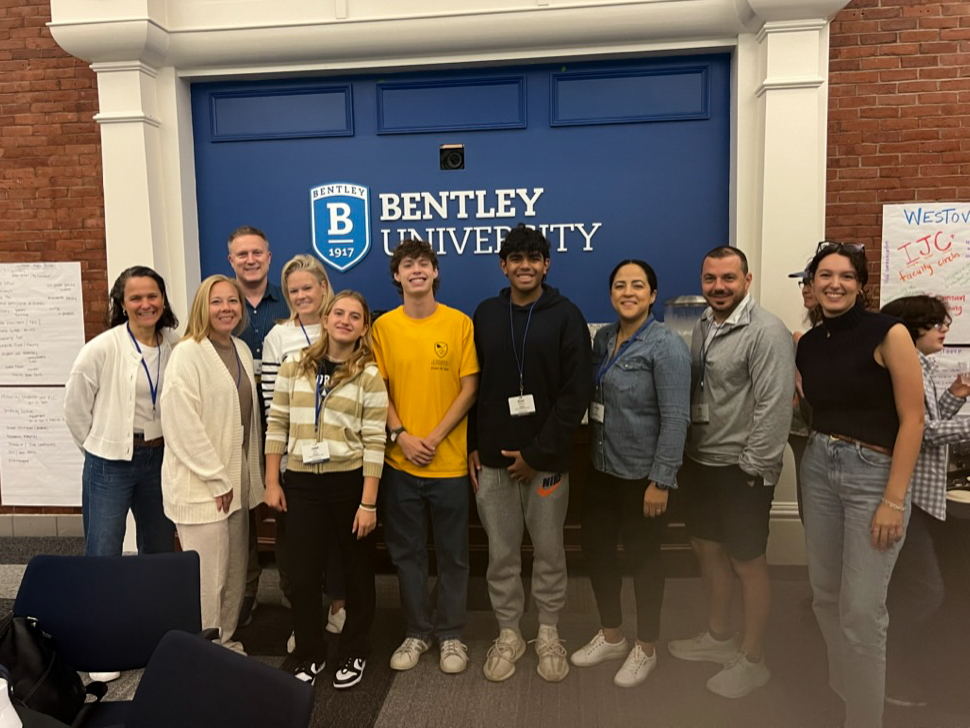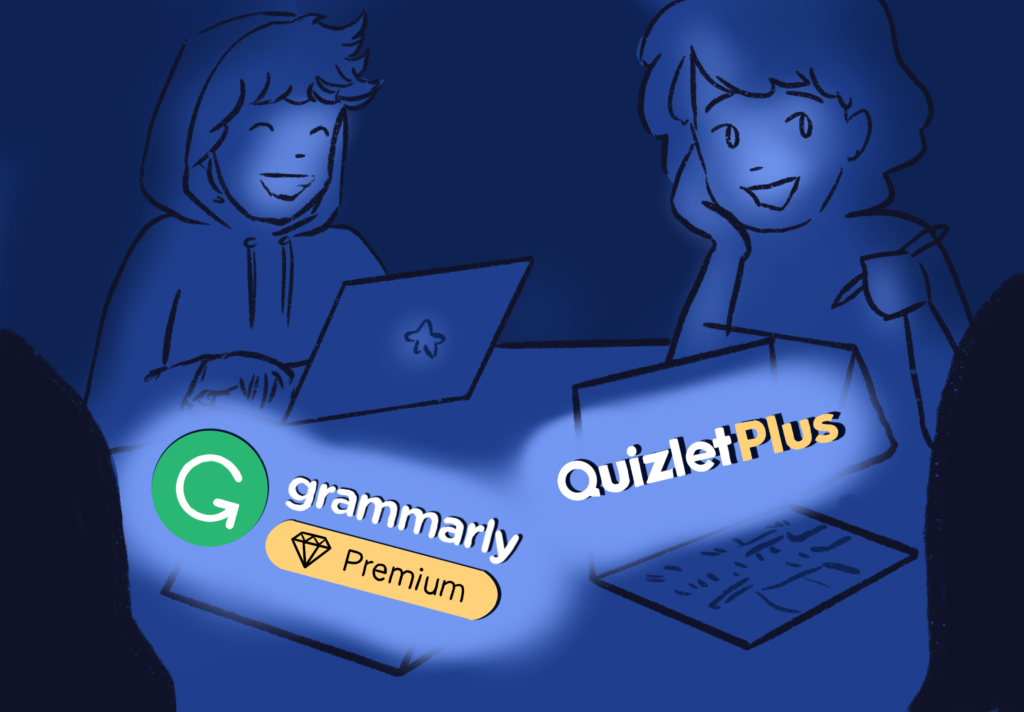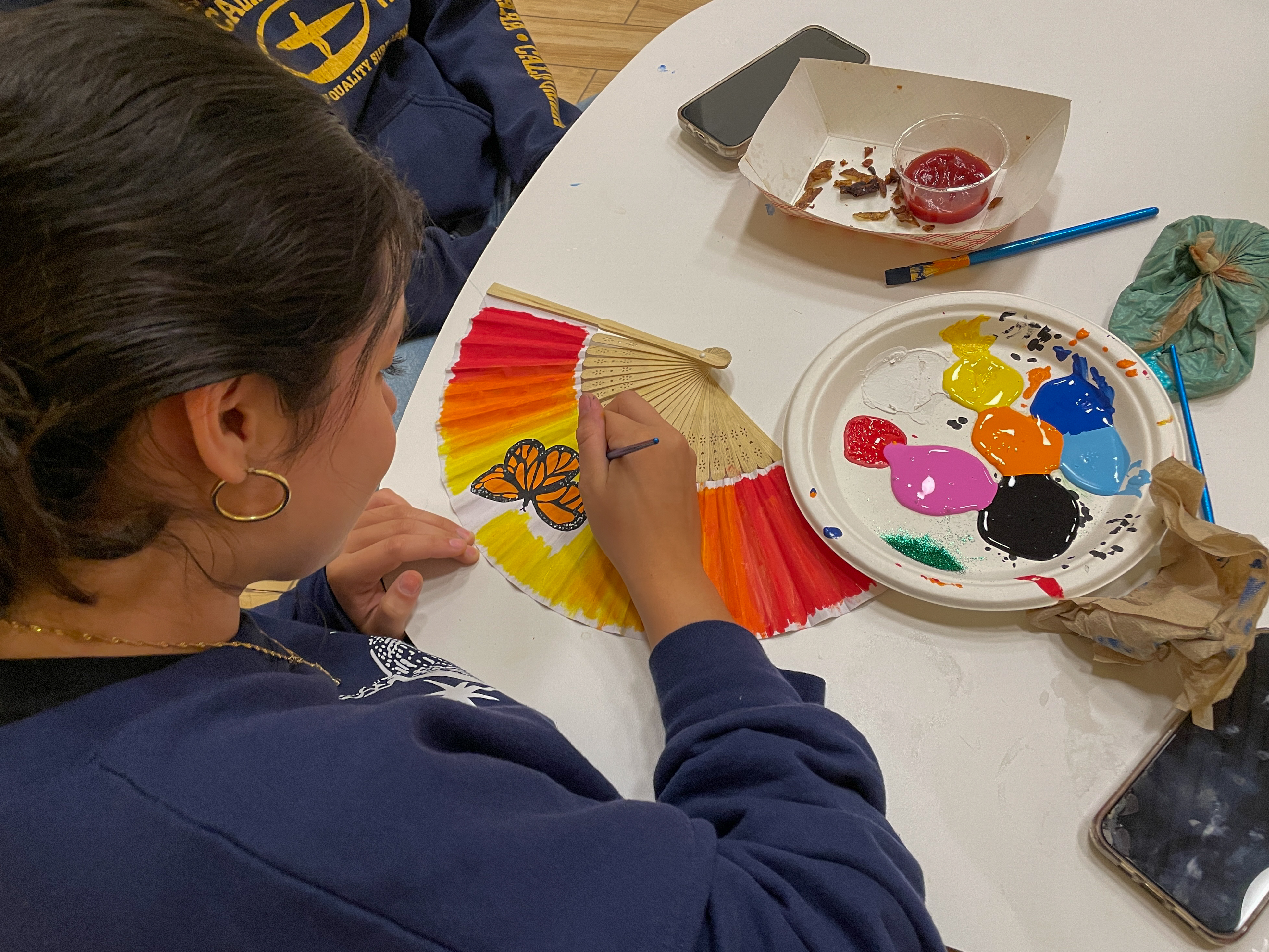
Photo courtesy of Chief Communications Officer Ms. Alison Cady
By Bella Welch ’26 and Elizabeth Burgstahler ’26, Staff Reporters
The impact of social media and phone usage on the well-being of teenagers and adults has been brought to the attention of Choate faculty members and students alike. Choate’s Challenge Success Committee, composed of six faculty members and four students, is working to develop approaches to a new phone policy using feedback from the School community. The committee has partnered with Challenge Success, a non-profit affiliated with the Stanford University Graduate School of Education, to elevate student voices throughout the policy-making process.
“The goal of the committee is essentially to create a recommendation for a policy that the School could then implement for next year,” committee member and U.S. History teacher Ms. Abby Kandel said. Members of the committee are learning about the impact of social media and cell phone use on different communities to enrich and prepare themselves for the policy-making process that will happen at Choate.
A few members of the committee attended the Challenge Success Conference at Bentley University on September 27-28. Each day consisted of several workshops and get-to-know-you activities. The Choate representatives went into the two-day conference focusing on issues surrounding phone usage, although the conference covered multiple areas of wellness as well.
Adam Fleischman ’25, a member of the committee, shared that the conference helped him shift a critical eye towards “looking at the culture, the environment, and campus around phones and finding more roundabout ways [to] provide suggestions on how students are using phones [but] still give students autonomy.”
Fleischman, a sixth-form Student Council Representative, felt encouraged to join the Challenge Success Committee because of his connection to the Student Council and his personal standpoints on education. “I was interested in the first place because I have tried to be a bit more conscious of my own [cell phone] usership,” Fleischman said. “Both my parents are educators, and my dad was involved with my school’s board growing up … I have talked to them a lot about it, and particularly about phones in classes because it’s a pretty prevalent issue.”
Fleischman also attended some workshops at the conference that were not solely focused on technology usage. He attended four workshops throughout the two days, one of them being “Cultivating Mental Resilience: Mindfulness in the Work.” This session taught Fleishman many valuable skills on how to manage time and maintain healthy habits. “I noticed a big difference in my focus as soon as our speaker started talking about different practices, like forms of meditation, relaxation, breathing and basically improving that focus, [which] I brought into my own classes,” Fleischman said.
Committee member and conference attendee Ana Bury ’25 also learned new strategies of mindfulness that she hopes to incorporate into her life at Choate: “Every person has their own version of mindfulness … [We are] trying to communicate that there are other ways that we can destress that aren’t technology-based, that don’t cause us more stress, that don’t [just] give us this instant hit and rush of dopamine,” she said.
Other than simply attending the workshop sessions, committee members also had the opportunity to form connections with students and faculty members from other schools. Committee member and Third-form Dean Ms. Emily Osterhout noted how vital it was for Choate students to be involved in the trajectory of decisions revolving around technology. “[Choate] definitely had the most student representation of all the other schools, and so they would go off into conferences or different sessions that were more student-focused. And then when we came back that first night, … they had already formed connections with students from the other schools,” she said.
Having worked with Challenge Success before, Head of Student and Academic Life Ms. Jenny Elliott echoed this idea and said, “What I appreciate so much about [the work of Challenge Success] is their insistence on including student voice in problem-solving.”
Although Choate has taken large steps toward student wellness, attending the conference has also encouraged members of the Choate community to prioritize faculty wellness. “One of the challenge success counselors was walking around and looked at our [list of policies] and said, ‘This is all student-based,’” Ms. Osterhout said. “You can’t have student well-being until you have faculty well-being. What are we doing at Choate for faculty well-being so that they’re at their best to then help promote student well-being?”
Social media and cell phone use have both benefits and drawbacks. It’s important for the community to compromise when finding ways in which students and faculty can engage with the digital world and forge connections in the Choate community. The hope for the Challenge Success Committee and the Challenge Success Conference is to provide all community members with a policy in which their voices are heard and their well-being is put first.




